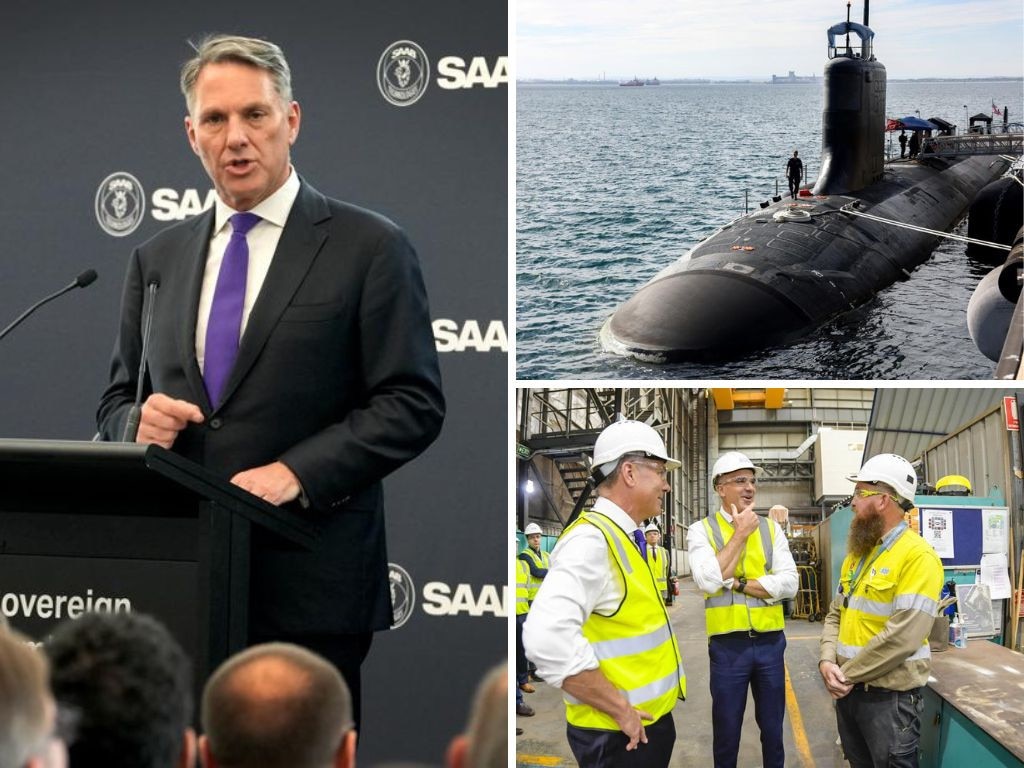Domestic political strategy must match need for increased defence spending

But Australia’s defence, diplomacy and development budgets are likely to be even more strained than those of European countries, and the balance of these investments must be considered together. The reality is that as a share of commonwealth spending, Australia’s combined international affairs budgets funding defence, diplomacy, federal police and the intelligence community have been steady at 10 per cent for 25 years.
There are three reasons the budget pressures here will be more acute than those plaguing Europe. First, this moment demands a global diplomatic reinvestment. Foreign Affairs and Trade operates a network of posts weighted to the Indo-Pacific but we now find ourselves at a time where understanding Europe, and finding global coalitions for pressing issues, is critical. The truth is we need to be everywhere. Countries such as Britain and the Netherlands operate markedly bigger diplomatic networks. Funding for Australian diplomacy has been erratic for two decades. It must now be increased and consistent.
Second, we can’t cut aid. Some will point to the decision of the UK Starmer government, which cut aid to pay for defence. That comparison is wrong.
The UK is cutting aid from 0.5 to 0.3 per cent of gross national income. Australia scratches toward 0.2 per cent. Unlike Europe, Australia’s neighbourhood is full of low- and middle-income countries; nations with an overwhelming focus on their own economic and social development. In this context, development assistance is not a luxury. It is critical to Australia’s relationships with Southeast Asia and the Pacific, a strategic necessity, which we would cut to great peril.
Third, Australia’s defence capability choices are tougher and pricier than those facing Europe. Ultimately, the conversation ought to be about getting more usable military capability, more quickly, not about crude GDP metrics that measure cost rather than impact.
Once we shift the conversation on to that ground, however, things don’t get any easier. For reasons of geography, we need boats and planes that can operate over vast distances. For similar reasons, there is little prospect of pooling capabilities and logistics with proximate allies. None of this is cheap. And defence also needs to solve endemic personnel issues. AUKUS is part of this calculus, but none of these problems would disappear in its absence. And then there is climate, the inescapable need to invest in disaster risk reduction, and broader questions of national resilience.

Thankfully, diplomacy and development are relatively cheap. An extra $1bn to foreign affairs, for example, would go a very long way. Remaining steady on aid will cost nothing extra; even an extra $500m of aid would allow us to fill critical gaps vacated by the US. The bill gets big once defence is in the mix. Even a bump to 2.5 per cent of GDP over the forward estimates is tens of billions of dollars, with the present budget around $56bn and 2 per cent. And it’s getting harder to find more money, not least because of the protectionist turn in the US. Diminished global trade augurs badly for an economy such as ours.
The three budget options are all tough: the government can reallocate spending and cut services; it can fund spending through debt; or it can find more revenue.
Australia must find a viable domestic political strategy to match the demands for increased defence spending. Or we can wait, like our friends in Europe, until a crisis leaves us with only worse choices still.
William Leben is an expert associate at the ANU’s National Security College





The statement by Trump Pentagon appointee Elbridge Colby that Australia should spend 3 per cent of GDP on defence has forced a conversation about Australia’s defence budget. Defence Minister Richard Marles has said “lifting that trajectory” is now part of an “ongoing conversation” with the United States.